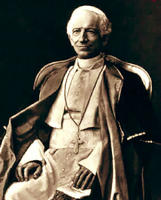I was elated this morning to read on rorate caeli about the resurgence of the latin language among catholics according to a report in the economist magazine. i was completely unaware that there was a Latin Language Radio Program on the german radio bremen as well as an online latin language newspaper ephemeris. What i find puzzling is the missed opportunities of late regarding recent international gatherings of catholics from many lands and tongues (think wyd or a gathering of international seminarians) where latin could have been used but was not. i could not help but remember the line attributed to blessed john paul ii at the synod of 2001 regarding the loss of latin when the only bishop present to use it consistently was janis cardinal pujats of latvia: "Paupera lingua latina: ultimum refugium habet in riga!" a very sad comment on the state of the official language of the catholic church.
here is a post relating to this from The Cornell society for a good time:
MONDAY, OCTOBER 24, 2005
One Cardinal was in Latin, all the time, at Synod
 The situation of Latin in the Church is certainly not good; no doubt it will be a long time before we will again see the likes of Leo XIII (an example of his poetry you can find here). Yet still, between laity attached to the traditional rite, who, young and old, often take great pains to acquire the rudiments of the language, and the clergy of the old rite, there are people out there, learning Latin, and taking it quite seriously. And if you want a taste of using Latin as a spoken language, Fr Reginald Foster, O.C.D. may have room for more in Roma during the summer time.
The situation of Latin in the Church is certainly not good; no doubt it will be a long time before we will again see the likes of Leo XIII (an example of his poetry you can find here). Yet still, between laity attached to the traditional rite, who, young and old, often take great pains to acquire the rudiments of the language, and the clergy of the old rite, there are people out there, learning Latin, and taking it quite seriously. And if you want a taste of using Latin as a spoken language, Fr Reginald Foster, O.C.D. may have room for more in Roma during the summer time.But all that wasn't why the article was worth reading. This following part was. Check this out:
"According to reports, only one synod participant spoke Latin every
 time he took the microphone: Latvian Cardinal Janis Pujats, the Archbishop of Riga. He did the same at the previous synod in 2001 . . ."
time he took the microphone: Latvian Cardinal Janis Pujats, the Archbishop of Riga. He did the same at the previous synod in 2001 . . ."I love it! This man is now my hero. But then, John Paul II also went up a notch in my book when, at the last Synod in 2001, he made this witty remark about Pujats:
"Paupera lingua latina: ultimum refugium habet in Riga!"
John Paul was no slouch when it came to Latin. Of course, for anyone to work in the upper echelons of the Apostolic Palace, one has to be at least proficient in Latin: one may not have to be able to write it like Reggie, but one has to be able to read large amounts of it and understand it. What's sad, if I understand the report from the London Times correctly, is that the bishops couldn't follow Angelo Cardinal Scola's addresses, even with the Latin words in from of their faces. He was telling them: "We're on page 14-- get with the program, guys!" My congratulations to Cardinal Scola that he, too, wasn't going to go the easy route, but used Latin instead of Italian for his general addresses.
As I was saying, about John Paul, when Reggie and his teacher wrote up Karol Wojtyla's first speech to the Cardinals after the election in 1978, the former Archbishop of Krakow liked what Reggie had written, but added a few of his own remarks to conclude the speech. These remarks included words of praise and love for Poland (Polonia, semper fidelis!) and words of filial devotion to the Blessed Virgin Mary. You might have thought that a Carmelite priest would already have included such material, but then again, I guess we're lucky that they didn't entirely forget the Blessed Virgin in the 1970s. At any rate, John Paul, during the night after the conclave and before his speech the next morning, added this section in Latin and then Reggie and Co. slightly polished what he had written.


No comments:
Post a Comment